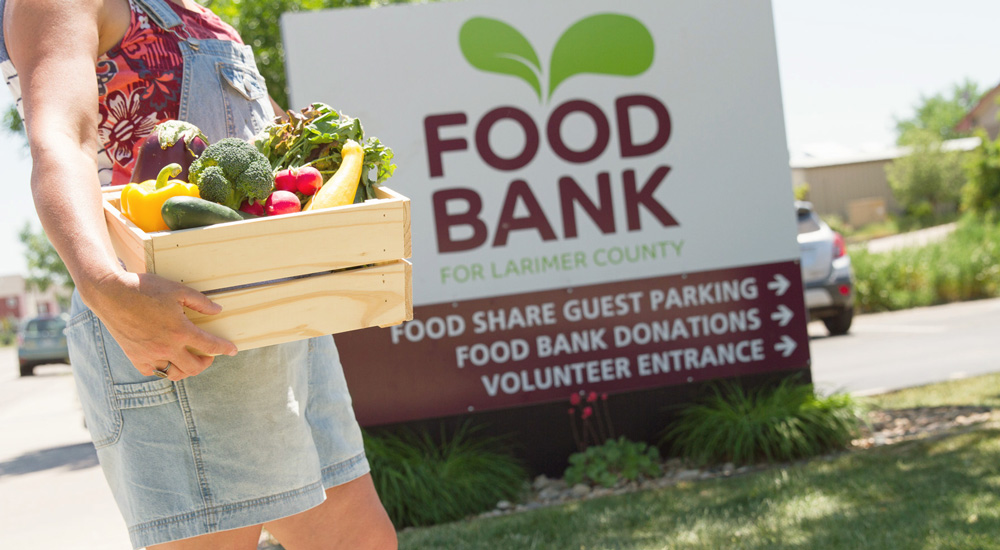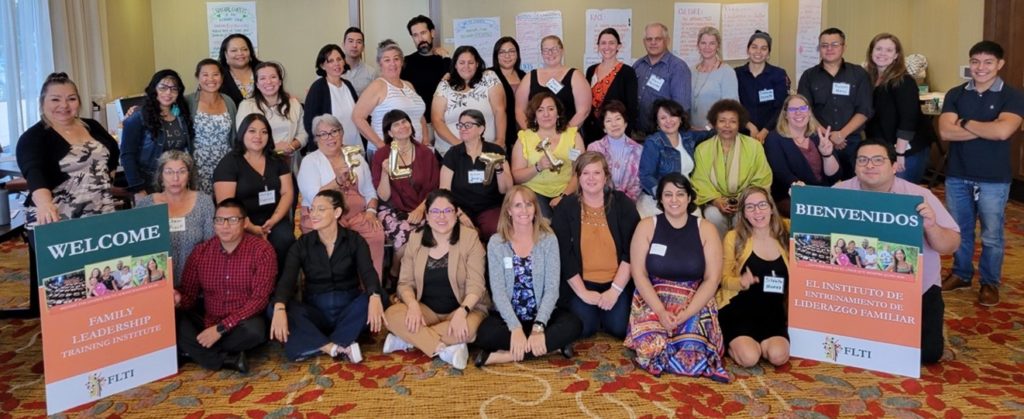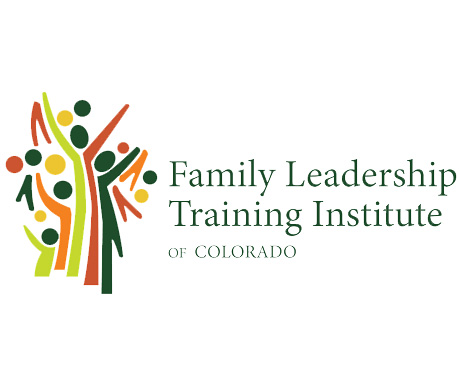Part of a special series highlighting College of Liberal Arts students and their summer internships with CSU Extension

“Let’s build bridges, not walls.” – Martin Luther King, Jr.
This summer, sociology students put their interviewing skills, critical thinking abilities, and understanding of organizations and people to work in connecting community members and organizations around the state of Colorado. Emilia Ravetta, Ph.D. candidate, served as a conduit between food pantries and gardeners, and Milagro Núñez-Solis, Ph.D. candidate, connected youth with opportunities to strengthen their local communities.
Grow & Give: improving food security by connecting gardeners with neighbors
Ravetta interned with Extension’s Grow & Give food security program that was launched in 2020 to improve local food systems by fostering connections between gardeners with bountiful harvests and their neighbors experiencing food insecurity. “Extension has experts in agriculture and growing food, but they wanted to increase engagement and communication with who is receiving the donations,” says Ravetta. “They asked me to contact food pantries and hunger relief organizations (HROs) to find out if they know about Grow & Give and find out how it’s working for them. My sociological focus was about engaging in conversations with stakeholders, and that was a lot of fun.”
Social science can be as much an art as a science when sociologists like Ravetta skillfully and genuinely connect with people and work together toward a common goal like improving public health outcomes. Grow & Give already had processes in place to measure numbers of donations and pounds of food (quantitative data), so Ravetta was brought on board to measure community impact by collecting stories (qualitative data). “Sometimes we have to justify what we do as social scientists,” she explains, “but those conversations actually produce data we can use.”
To determine awareness and effectiveness of the program among HROs, pantries, and growers, Ravetta employed social science techniques to design interviews, conduct 14 across five counties, and collect program evaluation data. Based on those findings, she created an interview guide and two survey tools that Grow & Give can continue using in the future. Ravetta also made several recommendations for improving communications among Grow & Give leaders and gardeners and community HROs and pantries.
These recommendations were based on her initial interviews and include easy-to-manage tools like flyers, social media templates, stickers, and bags to increase awareness of Grow & Give and consistent emails, notifications, and newsletters to provide resources for all stakeholders.

“Some gardeners didn’t know that Grow & Give offers resources through CSU Extension for growing food at high altitudes, and some pantries didn’t realize Extension offers resources for improving food storage,” Ravetta describes. She also passed along stakeholder requests for meetings with growers and training sessions for HRO staff and volunteers.
Ravetta was surprised to discover how small communities have significant numbers of people working on food security and sustainability. “Rural areas around the state are doing lot of things to recover from the pandemic. I really enjoyed being a bridge,” Ravetta recalls happily. “Listening to stakeholders and making suggestions to Grow & Give, then hearing Grow & Give say ‘Sure, we can do that for them’ was awesome.”

“Rather than focusing on the obstacle in your path, focus on the bridge over the obstacle.” – Mary Lou Retton
Civic Capacity Index: increase youth engagement in their own communities
Núñez-Solis interned with Extension to further the reach and impact of its Civic Capacity Index (CCI) through collaborations with the Family Leadership Training Institute (FLTI) and community members of all ages across Colorado. Extension created the CCI as a tool for measuring communities’ social strengths and weaknesses in order to better equip local changemakers in their efforts to improve social justice and equity. FLTI offers such training for community members, especially those from underrepresented populations. Núñez-Solis was brought on board to improve engagement in civics and community leadership with youth specifically.
She collected data and analyzed several community needs assessments and CCI results for Yuma County, a rural area in northeastern Colorado. Based on her findings and on research around participatory action research methodologies for youth, Núñez-Solis developed FLTI curriculum to improve Yuma County’s young citizens’ sense of belonging and help them find and use their voices. Her work serves as a bridge between decision makers and historically underrepresented youth so that together they can develop more effective solutions to problems in their community.
The resources Núñez-Solis’ created have a social justice focus, which was important to her as well as a central part of FLTI’s mission to bring more diverse voices to the table and offer tools for being more effective changemakers. “To me this is very powerful, but what was more powerful was to see it in action,” she says. “I met a big group of FLTI graduates who are doing great things for their communities and have an active voice denouncing injustices. I learned from and felt inspired by them.”
Núñez-Solis connected with graduates from many different ethnic, educational, and economic backgrounds as she completed FLTI’s facilitator training as part of her internship. “During the training I was able to engage in deep discussions and reflections about race and gender justice,” she describes.

After seeing how FLTI is set up to increase civic capacities in individuals, Núñez-Solis reflected on her past experiences as a rural community development facilitator in her home country of Costa Rica. “The current focus in Latin America is not around civic capacities and bringing voices to the table so government and citizens can find shared and equitable solutions, instead it focuses more on economic development and ‘fixing’ people’s income,” she says. “There is no gain or benefit in people improving their incomes when they are not developing their skills around civic building which would lead to more collective and long-term results.”
“I want to do work that makes a difference in the community…What Extension offers is so great.” — Emilia Ravetta
“Effort and hard work construct the bridge that connects your dreams to reality.” – Daisaku Ikeda
Bridges to the Future
Both Ravetta and Núñez-Solis describe their internship experiences as vital to their future career paths. “I want to do work that makes a difference in the community,” says Ravetta. “What Extension offers is so great.” For her second summer as an Extension intern, Ravetta was given the freedom to work on Grow & Give’s entire outreach project. “I really enjoy community engagement, and it is something I will continue to do as I put my skills into practice,” she says.
Núñez-Solis also gained a variety of real-world experience. She worked on data visualization and ways to present CCI results in more interactive ways, developed curriculum, and completed FLTI training on facilitating participatory processes. Although she came into the Extension program with prior experience as a community engagement professional, she says FLTI was her first experience with how collaborative and participatory teamwork can be successful among diverse stakeholders. Núñez-Solis plans to put her experiences to use in the classroom, with Latinx activism and community engagement, and to facilitate various community-driven projects.
Internships: The Practical and Applied Side of the Liberal Arts
The CSU Summer Extension Internship program gives students the opportunity to take their research and expertise into the field to help communities across Colorado in the areas of Natural Resources and Sustainability, Food and Agriculture, Youth Development, Economic and Community Development, Health and Well-Being, and Emergency Planning and Resources.
In summer 2022, the College of Liberal Arts had 18 students participate in an Extension internship.